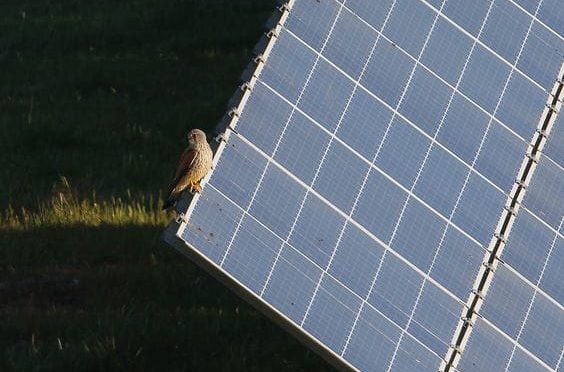UNEF, the Spanish Photovoltaic Union, within its commitment to promoting a fair and sustainable energy transition through innovation and research, commemorates International Earth Day for another year, emphasizing the need for both companies and public institutions to , continue betting on R&D&i as a basic tool to achieve national decarbonization objectives.
“Innovation is like a bicycle, if you stop pedaling it stops. Therefore, it is essential that through public-private collaboration our sector continues to put the greatest possible efforts into generating more efficient technological solutions and that it further increases the social and environmental integration ratios of our projects while at the same time we amplify the creation of value for citizens”, recalled José Donoso, general director of the sectoral association.
Furthermore, in the context of this day, UNEF also wanted to highlight the current capacity that the national photovoltaic sector has to generate new innovations throughout its entire value chain, highlighting the four photovoltaic developments that are currently most promising for the solar energy deployment:
- Very high temperature energy accumulation with thermo-photovoltaic technology:
From the solar energy institute, the Termobat project promises to store electricity by melting ferrosilicon alloys at temperatures above 1000ºC. This heat can be stored for long periods of time and converted back into electricity using thermophotovoltaic energy. This innovative approach provides both heat and electricity on demand, solving current threats of uncertain supply and enabling a clean and sustainable future. This project will be presented at the technological innovation event in Spain, The Fotoplat Assembly, this May 7.
- Solar trackers with backtracking:
These advanced algorithms allow for greater efficiency in the panels. In Spain, the companies Soltec and PVH, among others, are working on them.
- Reuse of panels:
This project, developed by the CIEMAT research center, allows the useful life of already used panels to be extended.
- Photovoltaic maintenance with drones:
CELSOS is the inspection and diagnosis technology for photovoltaic installations based on the depth of analysis provided by electroluminescence images, the efficiency in data capture through drones and the possibilities of artificial intelligence for the massive identification and classification of defects. and pathologies present in the photovoltaic modules.
This project is known as the CELSOS spin-off project of the CENER research center.
“Innovation is a key lever to face the new challenges that the climate emergency presents to us and to which we have a lot to contribute as a key sector for decarbonization. Currently, our country has good research centers to implement new solutions that allow us to further increase the social and environmental integration ratios of solar energy projects while increasing their productivity,” Donoso stressed. .
UNEF and the Ministry of Science and Innovation work through FOTOPLAT
For more than five years, within the sector association’s commitment to innovation, UNEF has been part of the Spanish Photovoltaic Technology Platform (FOTOPLAT), an initiative that depends on the Ministry of Science, Innovation and Universities of Spain through the Platforms program. Technological.
“At UNEF, we are committed to feeding and maintaining a Spanish photovoltaic technological platform with continuity over time, which promotes R&D&i in the photovoltaic sector, bringing together in the same forum both companies and research centers from different countries. technologies,” explained Donoso.
In this context, UNEF organizes the FOTOPLAT Annual Assembly at the State Research Agency in Madrid on May 7. During the event, renowned speakers, representatives of leading companies and prominent research centers will present the latest technological advances in the sector as well as the needs of the sector to promote innovation.
The Fotoplat Assembly will be attended by Elisa Rivera, General Director of Planning, Coordination and Knowledge Transfer at the Ministry of Science, whose presence highlights the strategic importance that the government gives to the development of Photovoltaics in Spain.
“At UNEF we are committed to ensuring that the national photovoltaic sector continues to advance with technology as its flagship. Our priority is for Spain to become a photovoltaic hub since the dystopias that we have experienced in recent years have shown us the importance of having our own technology that provides us with stability and security when it comes to completing the energy transition both in our country and in the rest of Europe.”, explained the director general of UNEF.


